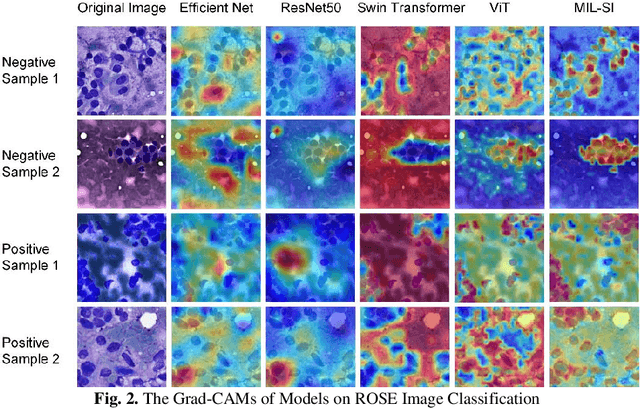Pancreatic Cancer ROSE Image Classification Based on Multiple Instance Learning with Shuffle Instances
Paper and Code
Jun 07, 2022


The rapid on-site evaluation (ROSE) technique can significantly ac-celerate the diagnostic workflow of pancreatic cancer by immediately analyzing the fast-stained cytopathological images with on-site pathologists. Computer-aided diagnosis (CAD) using the deep learning method has the potential to solve the problem of insufficient pathology staffing. However, the cancerous patterns of ROSE images vary greatly between different samples, making the CAD task extremely challenging. Besides, due to different staining qualities and various types of acquisition devices, the ROSE images also have compli-cated perturbations in terms of color distribution, brightness, and contrast. To address these challenges, we proposed a novel multiple instance learning (MIL) approach using shuffle patches containing the instances, which adopts the patch-based learning strategy of Vision Transformers. With the re-grouped bags of shuffle instances and their bag-level soft labels, the approach utilizes a MIL head to make the model focus on the features from the pancreatic cancer cells, rather than that from various perturbations in ROSE images. Simultaneously, combined with a classification head, the model can effectively identify the gen-eral distributive patterns across different instances. The results demonstrate the significant improvements in the classification accuracy with more accurate at-tention regions, indicating that the diverse patterns of ROSE images are effec-tively extracted, and the complicated perturbations of ROSE images are signifi-cantly eliminated. It also suggests that the MIL with shuffle instances has great potential in the analysis of cytopathological images.
 Add to Chrome
Add to Chrome Add to Firefox
Add to Firefox Add to Edge
Add to Edge